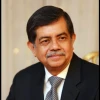Islamist student group Islami Chhatra Shibir has made a sweeping comeback at the Chittagong University Central Students’ Union (CUSU) election, securing an overwhelming victory after 44 years, despite allegations and counter-allegations surrounding the polls.
With this result—following the recent student union polls at Dhaka and Jahangirnagar universities—all three major university unions are now under the control of Jamaat-e-Islami’s student wing.
The results were announced around 4:45 am on Wednesday by Chief Election Commissioner Professor Monir Uddin at the Faculty of Business Studies auditorium. The hall burst into celebration as Shibir activists rejoiced in victory.
Shibir’s Dominance
Out of the 26 central positions, candidates from Shibir-backed Sampriti Shikkharthi Jote won 24 posts, including the top two—Vice President (VP) and General Secretary (GS).
In the VP race, Ibrahim Hossain Roni, a student of the 2017–18 session from the Department of History and president of Chattogram South City Shibir, secured 7,983 votes, defeating BNP-backed Chhatra Dal’s Sazzad Hossain Hridoy, who received 4,374 votes.
For the GS post, Saeed Bin Habib, another History student from the 2019–20 session and Shibir’s literature and human rights secretary, bagged 8,031 votes, while Chhatra Dal’s candidate, Md Shafayat Hossain, got 2,724 votes.
However, in the Assistant General Secretary (AGS) race, Chhatra Dal’s Aiyubur Rahman Taufiq pulled off a notable win with 7,014 votes, defeating Shibir’s Sazzat Hossain Munna, who received 5,045 votes.
Tamanna Mahfuz Smriti from Binirman Shikkharthi Oikya won the post of Joint Sports Secretary.
Voter Turnout and Irregularities
According to the Election Commission, 65 percent of the university’s 27,516 registered voters cast their ballots. Voting, scheduled to start at 9 am, began around 9:30 am, while voting for visually impaired students started at 11:30 am.
Several panels alleged that the marking ink was erasable and that outsiders were seen entering the campus. In one case, 12 unsigned ballot papers were reportedly found at the IT Faculty polling center.
Vote counting took place using machines at five centers before the university’s IT cell cross-checked the results. After the tallies matched, the official results were declared.
Security and Administration’s Role
Vice Chancellor Professor Mohammad Yahya Akhtar visited several polling centers in the morning and told reporters, “This election can be seen as a rehearsal and a positive environment ahead of the upcoming national election.”
A tight security blanket was in place across the campus, with Border Guard Bangladesh (BGB) deployed after reports of post-poll tensions between Chhatra Dal and Shibir supporters.
Complaints and Reactions
Like the previous DUCSU and JUCSU elections, Chhatra Dal alleged irregularities and administrative bias but did not reject the results this time.
Thirteen panels, both full and partial, contested in the election. A total of 415 candidates (348 men and 47 women) competed for 26 central positions, while 493 candidates contested 206 posts in 14 halls and one hostel.
A Look Back in History
The first CUSU election took place in 1970, and the last one before this year was held in 1990.
1970: VP Mohammad Ibrahim (Chhatra League), GS Abdur Rob
1972: VP Shamsuzzaman Hira (Chhatra Union), GS Mahmudur Rahman Manna (JSD Chhatra League)
1974: VP SM Fazlul Haque, GS Golam Zilani Chowdhury (JSD Chhatra League)
1979: VP Mazharul Haque Shah Chowdhury (JSD Chhatra League), GS Zamir Chowdhury (Chhatra League)
1981: VP Jasim Uddin Sarkar, GS Abdul Gaffar (Islami Chhatra Shibir)
1990: VP Nazim Uddin (Jatiya Chhatra League), GS Azim Uddin Ahmad (Chhatra Front)
A New Political Reality
In a post-uprising political landscape where the Chhatra League remains banned, the main contest was between Shibir and Chhatra Dal—with Shibir claiming a decisive victory.
Continuing their winning streak from Dhaka and Jahangirnagar universities, Islami Chhatra Shibir has now reclaimed the CUSU leadership—marking a return to the campus helm after more than four decades.

-1760591935.webp)
-1760590854.webp) Prev Post :
Prev Post :
